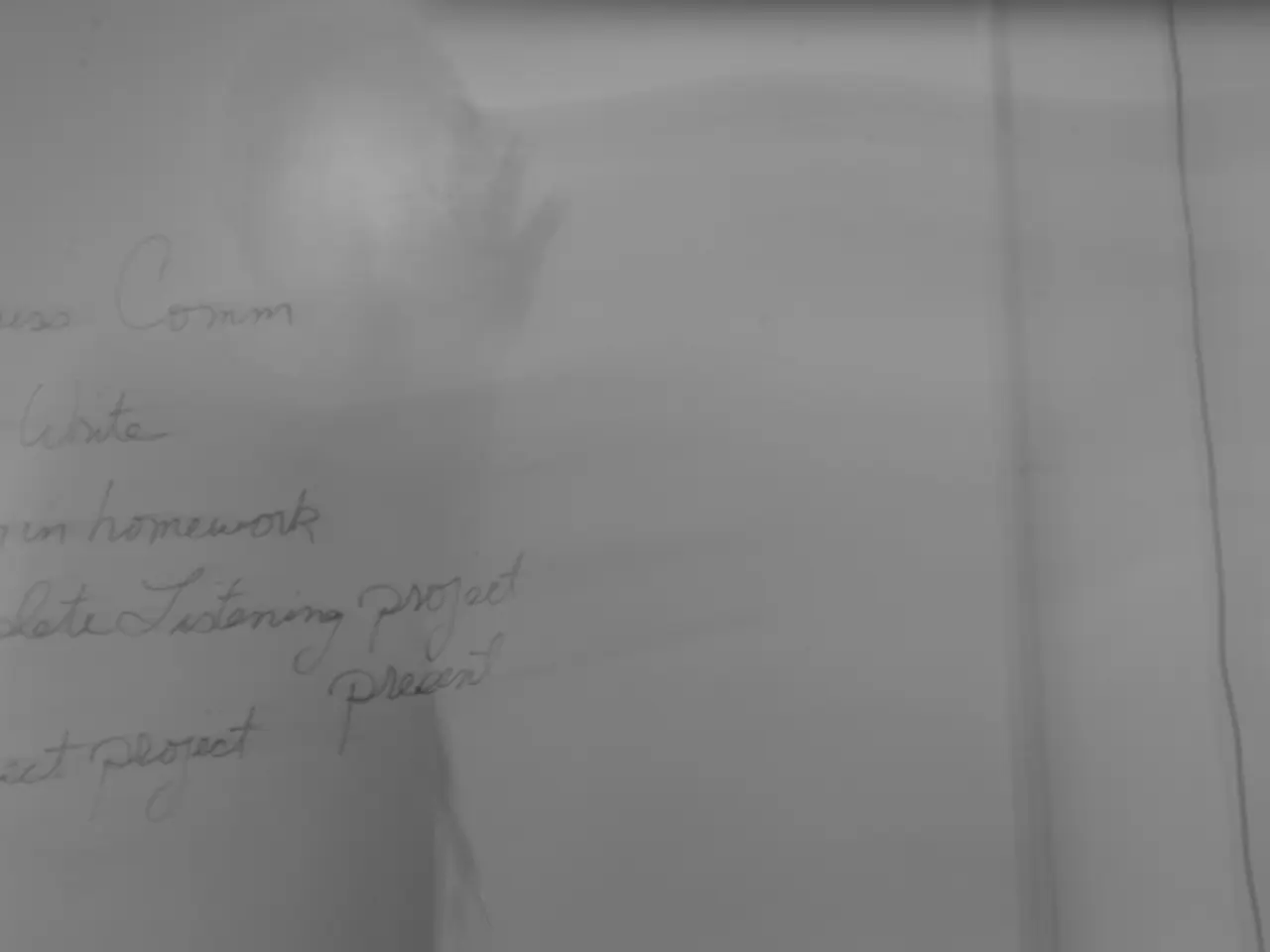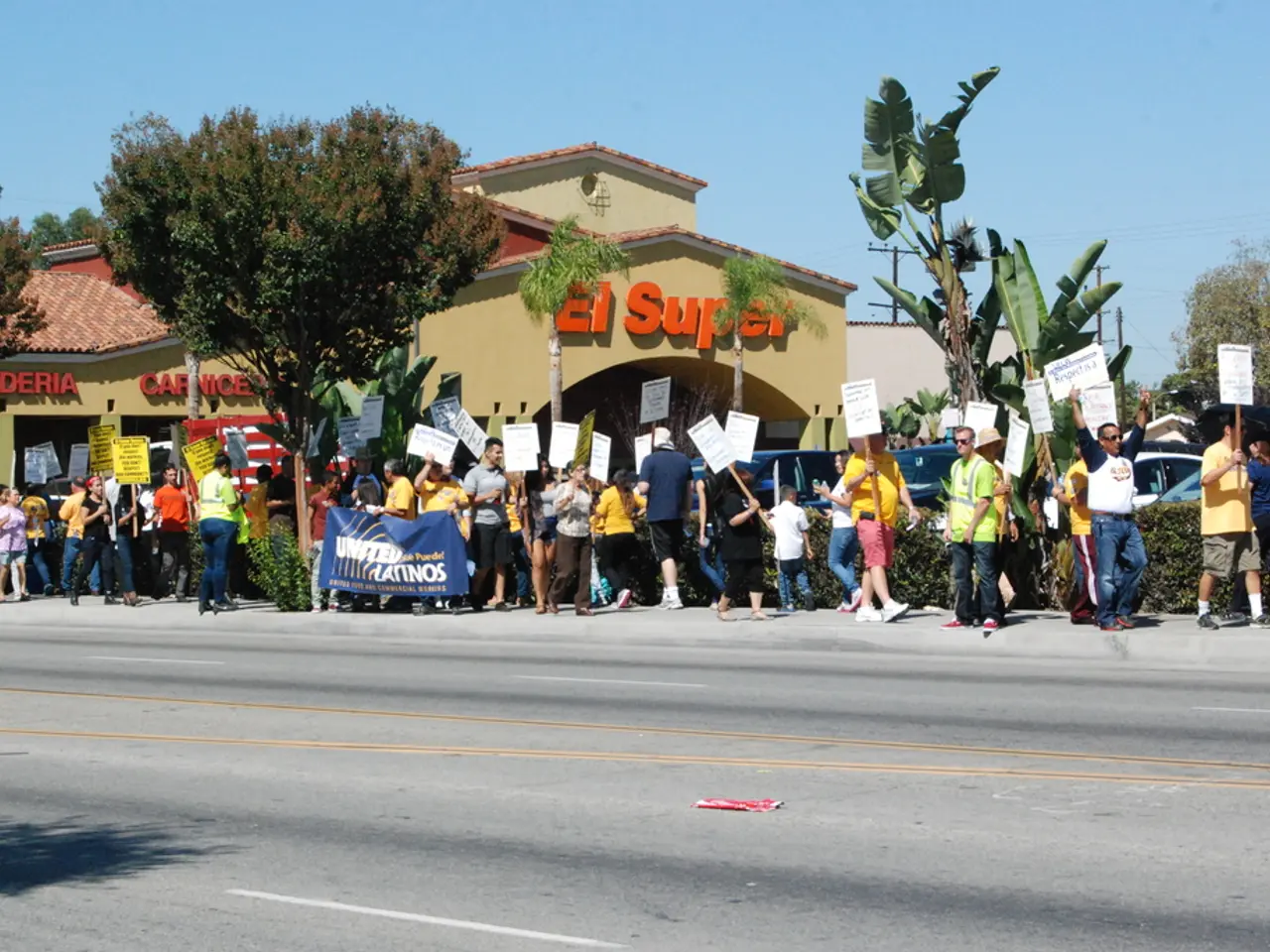Red-Green Party allegedly unwilling to address immigration issue according to Daniel Schirm (FDP)
German Politician Urges Action on Migration Policy
In a speech delivered at the German Bundestag, Daniel Schirm, FDP Bundestag candidate, called for immediate action to address the ongoing migration crisis and restore order. Schirm believes that the current political center, primarily the Black-Yellow coalition, must confront the challenges head-on to combat the rise of the far-right Alternative for Germany (AfD) party.
Schirm expressed disappointment in the lack of solution-oriented culture in the political center, particularly in the Red-Green coalition, which he accused of refusing real solutions in migration policy for years. He praised the Union's proposed migration resolution, stating that it was correct in substance. However, he criticized Chancellor Friedrich Merz's approach as being more focused on confrontation than solutions.
The FDP's proposal for voting includes stripping development aid from states that fail to reach repatriation agreements, a move aimed at encouraging compliance with migration policies. Schirm advocates for the political center to jointly solve current crises, including ending irregular migration.
The CDU, under Chancellor Merz, leads a markedly hardline, restrictive migration policy. The party aims to sharply reduce asylum seeker arrivals and increase deportations, positioning Germany at the forefront of a broader EU rightward shift on migration measures. The Interior Minister Dobrindt is pushing to legally designate more "safe countries of origin" to speed deportations.
The SPD, part of the current government coalition, supports the tough migration stance but has experienced declining public support due to this hardline policy. They back measures to reject undocumented arrivals and accelerate deportations, though generally emphasizing social integration where possible.
The Greens stand distinctively more critical of strict asylum policies. Green parliamentarians warn that designating countries as "safe" risks unjustly denying asylum to vulnerable people from countries such as Egypt and Tunisia. They advocate for fairer asylum procedures, greater protection of refugees’ rights, and oppose severe restrictions proposed by the government coalition.
Schirm did not express any new criticisms towards the Red-Green coalition or Friedrich Merz in this paragraph. Instead, he urged the SPD and Greens to move and acknowledge realities, stating that combating the AfD requires the political center to address current crises.
The debate on migration held at the Bundestag on Wednesday was marked by heated discussions over two proposals from the CDU. As of mid-2025, the four major German parties have these general stances and proposals on migration policy: the CDU with its restrictive, border-focused approach; the FDP, aligned with restrictive policies but facing criticism over their handling of migration; the SPD, supporting the coalition government’s tough stance but experiencing declining public support; and the Greens, standing critical of strict asylum policies and emphasizing human rights and fair asylum access. This shift reflects a broader European move toward stricter migration controls amid rising far-right influence and political pressure to limit asylum numbers.
- Daniel Schirm, the FDP Bundestag candidate, accentuated the need for the political center, including the SPD and Greens, to respond urgently to the migration crisis and collaborate in finding resolutions, as doing so is crucial to combat the rising influence of the far-right Alternative for Germany (AfD) party.
- In the speech at the German Bundestag, Schirm expressed his dissatisfaction with the Red-Green coalition's lack of proactive solutions in migration policy, but he did not present any new criticisms towards them or Chancellor Friedrich Merz in this particular discussion.
- The political center, particularly the SPD and Greens, is under pressure to address the ongoing migration crises and reconcile their views on migration policy, as the current stances and proposals reflect a broader European trend toward stricter controls, in part driven by rising far-right influence and pressure to limit asylum numbers.








